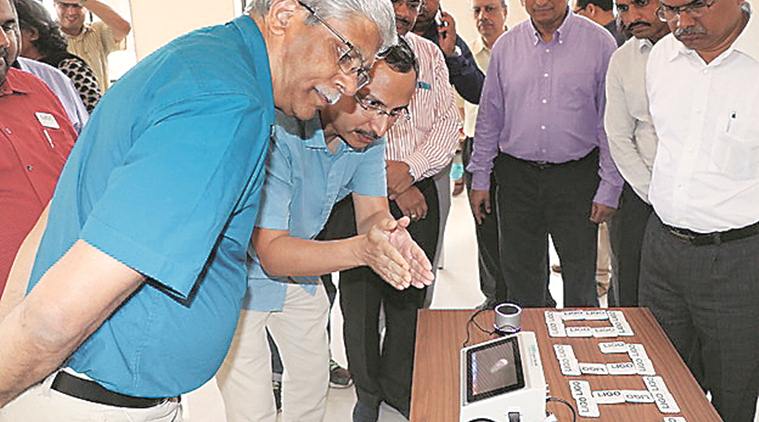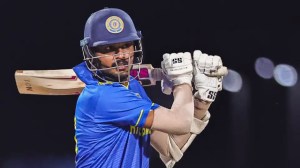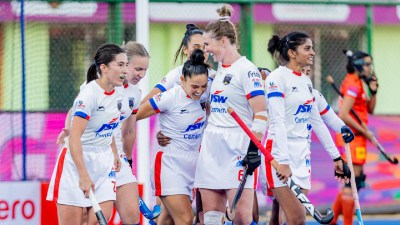Pune: SPPU, IUCAA inaugurate lab for joint space, astronomy projects
At the lab — SPPU -IUCAA Training and Research Alliance (SITARA) — research and training for various space-based and astronomical projects will take place. The lab has been set up in the Interdisciplinary School of Sciences (IDSS).
 Last week, the two institutions had inked an MoU to jointly undertake new courses, research programmes and space-based activities. (Express)
Last week, the two institutions had inked an MoU to jointly undertake new courses, research programmes and space-based activities. (Express)
The Savitribai Phule Pune University (SPPU) and the Inter-University Centre for Astronomy and Astrophysics (IUCAA) on Monday inaugurated a laboratory to jointly spearhead research and future space activities.
At the lab — SPPU -IUCAA Training and Research Alliance (SITARA) — research and training for various space-based and astronomical projects will take place. The lab has been set up in the Interdisciplinary School of Sciences (IDSS).
Last week, the two institutions had inked an MoU to jointly undertake new courses, research programmes and space-based activities. IUCAA will be working with students and faculty from five SPPU departments — Physics, Electronics, Technology, Instrumentation Science and space science.
The collaboration is perfectly timed and the expertise of the two institutions is expected to accelerate research in space sciences and astronomy. The SPPU, through its department of Space Science, has been a seasoned contributor in this field, whereas IUCAA is presently involved in a number of international astronomical missions.
In addition to Laser Interferometer Gravitational-wave Observatory (LIGO), IUCAA has worked on Astrosat and is presently working on a payload for Aaditya L1 mission to the Sun, both missions taken up in collaboration with the Indian Space Research Organisation (ISRO).
“This is a unique collaboration with so many departments of SPPU. It will an experimental initiative where the lab will operate both as a training and research centre. Students and faculty from both institutions will initially work on LIGO, along with some space projects. We are also considering starting a new master’s level programme that will focus on training meant for these research activities,” said IUCAA Director Somak Raychaudhury.
In the long-term, the collaborating institutions plan to set up a payload integration centre at SITARA. The idea is to train and guide college students and others, outside ISRO, who build nano-satellites. However, the plan of this centre is at a nascent stage and requires several approvals, said officials.
Commenting on the collaboration, SPPU Vice-Chancellor Nitin Karmalkar said, “The SPPU has a number of bright students, who need to take up courses to meet present-day challenges. With changing times, we need similar collaborations that will help students take up challenges.”
In due course, the two institutions are expected to chalk out areas and projects of common interest, besides expanding courses to M Tech and doctoral-level studies.







